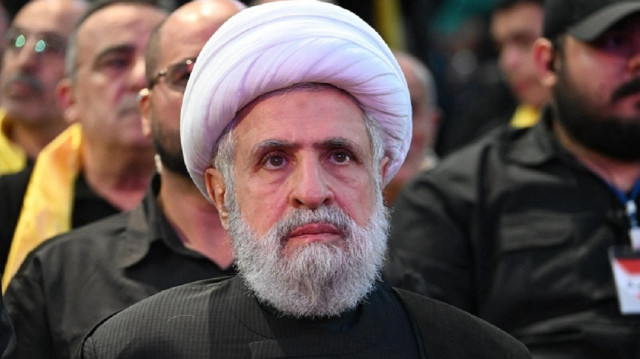

Hezbollah Secretary-General Naim Qassem
Pledges include rebuilding, addressing presidential vacancy, and more
Hezbollah Secretary-General Naim Qassem, in his first speech since the cease-fire with Israel took effect early Wednesday, outlined five key commitments for Lebanon's post-war recovery, including reconstruction efforts and addressing the country's prolonged political crisis.
In a recorded address Friday, Qassem emphasized Hezbollah's role in rebuilding the nation. “We will work with our people on reconstruction, using appropriate mechanisms, and will cooperate with the state to achieve this,” he said.
He also highlighted the urgency of completing Lebanon's constitutional framework, particularly by electing a new president. “We will ensure the presidential election occurs on schedule,” he added.
Lebanon has faced a presidential vacuum since Michel Aoun's term ended in October 2022. Twelve parliamentary sessions, the last on June 14, 2023, failed to elect a successor. Parliament Speaker Nabih Berri has set Jan. 9, 2025, as the date for a new session aimed at breaking the deadlock.
Qassem's third and fourth commitments focused on strengthening national unity. “We will cooperate with all forces that believe the country belongs to all its citizens and engage in dialogue to build a united Lebanon based on the Taif Agreement,” he said.
The Taif Agreement, signed in 1989, ended Lebanon's 15-year civil war and restructured power-sharing between the country's religious sects, creating a balance between Christians and Muslims.
Qassem's final commitment underscored the importance of national defense. “We will safeguard national unity and strengthen our defensive capabilities to deter any attempt by the (Israeli) enemy to undermine Lebanon,” he concluded.
The cease-fire, which began Wednesday, ended over 14 months of fighting between the Israeli army and Hezbollah.
Under the cease-fire terms, Israel is to withdraw its forces south of the Blue Line, the de facto border, in a phased manner, while the Lebanese army is tasked with deploying its forces in southern Lebanon within 60 days.
Details on the mechanisms for implementing the agreement and the oversight committee's operations have yet to be disclosed.
The conflict has taken a heavy toll, with more than 3,960 people killed, over 16,500 injured, and more than 1 million displaced in Israeli attacks on Lebanon since October last year, according to Lebanese health authorities.
#Hezbollah
#cease-fire in Lebanon
#Israel
#Naim Qassem
